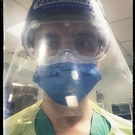An anterior segment surgeon recounts his experience working as an associate at a private equity owned practice.
Before I get started, I feel that there is an important caveat that must be noted. All that I write here is related to my personal experience, and obviously there will be some variation between the experiences of different individuals. This is by no means meant to be “the definitive description” of what it is like to work for private equity.
The General Structure of Private Equity Employment
This is probably not new information for the majority of readers, but private equity employed physicians come in two flavors. The flavor that I cannot address (but has and will be addressed in other posts on Ophtho Questions) is that of the physician owner who sells to private equity and then is required to stay on as an employed physician. The second flavor is the employed physician who is hired directly by the private equity firm after the practice has already been acquired. That is the perspective that I will address here.
The Reason that I Chose Private Equity (a.k.a. “The Good”)
I suppose that I should issue a spoiler alert that my overall retrospective assessment of private equity employment is negative. However, I would be remiss if I said that it was “all bad.” When I originally began my search for a position as an anterior segment ophthalmologist, I had been working for three years in another practice in which I was quite satisfied. My life circumstances were changing, which is what prompted the move, and I had a limited geography as my target area. Within that area, my job search yielded a teaching position, this private equity job, and several positions in which I would have been joining one or two other ophthalmologists. I personally felt that my surgical skills would erode if I were to spend most of my time teaching surgery rather than performing surgery, so I wasn’t that interested in teaching. Joining other ophthalmologists and building a practice with them was an attractive idea, but only if I could commit to a decades-long investment of time and energy. My starting pay in those positions was going to be on the order of 40% of collections.
If you are an ophthalmologist-in-training, this may be useful information for you: I believe that there is always a significant practice build time. Even if someone tells you that you will be “busy from day one,” you certainly will not be at your full volume within the first couple of months. I don’t think that this is a bad thing, but it is important when you consider your remuneration. Were I to have accepted 40% of collections as my initial compensation, I had to be prepared that 40% of nothing is nothing. Of course, it would not have ended up being nothing, but there is a reasonable chance that 40% of collections as a new associate could end up being less than resident salary for a while. This is especially true if the geographic area is not lacking in ophthalmologists.
So, the really good part about the private equity job was that it was a position with a guaranteed salary. Due to the changing life circumstances that brought me to that area, I wasn’t sure that I could commit to a long term tenure, and that financial security for the short term was a definite plus.
The Rest (a.k.a “The Bad”)
Autonomy and Input to the Running of the Practice
In summary, private equity jobs are those in which you have the least autonomy and the least input to the running of the practice. If you are taking a private equity job, make sure that they have all the equipment that you want up front. That will be the only time that you might even have a modicum of leverage to ask for what you need.
Every time I go to work, I am faced with an ancient biometer, a topographer that breaks every few months, and slit lamps and chairs installed before I was born. Of course, if something truly is dysfunctional, it will be fixed so that you can maintain your patient volume (more on that later). However, my input about what is needed to run the clinic and my desires for new equipment are otherwise summarily ignored.
Another daily battle that I face in the running of the practice is the constant variability of the support staff. Basically, this boils down to the fact that given that even my input and desires are ignored, the input and desires of the support staff are not even heard. This leads to quite a bit of job dissatisfaction on the part of the technicians, so there is a tech carousel with new faces popping out of the woodwork all the time. Usually, I get “enough” staff in terms of number of bodies in the building, but the ability of those individuals to work up patients is all over the map.
The Pressure of Patient Volume
As I stated above, the fact that my input about what is needed in the practice, both in terms of equipment and in terms of personnel, having no impact is basically the worst aspect of my private equity job. Reasoning that changing x or y in the office would allow me to provide a higher quality of care for patients falls on completely deaf ears. The only reasoning that does move the needle is suggesting that something can increase the number of patients we see.
Part of this may be the culture of my particular practice, but the corporate structure and non-physician ownership pushes private equity in this direction in general. When we are asked about what is good about our practice, the answer invariably has to do with patient volume. “We see over 80,000 patients per year.” That’s our mantra. What about the satisfaction of the patients? We don’t talk about that. What about our relationships with other providers in the community? They’re not necessarily that great because prioritizing volume and revenue above all else doesn’t necessarily endear you to other eye care providers. What about our patient outcomes? We don’t track outcomes.
What percentage of our pre-coronavirus patient volume are we seeing? We know those numbers to three decimal places.
In addition to needing to reference volume in order to make any noise that the administration will hear, I have experienced numerous occasions in which my schedule template has been altered and increased without my knowledge. The strategy seems to be, “let’s add a patient or two every week until the doctor says something.”
The Hidden Theft and Promises Broken
Lastly, I should mention that incentive structure will have the strictest interpretation possible, as long as that strict interpretation favors not paying you. For example, if you have a quarter with a “negative” bonus, it will be counted against any real bonuses you get in any other quarter. If they say that a particular category of collections dollars are not going to be counted toward your bonus, efforts will be made to try to fit as much as possible into those categories.
When I was initially offered my total compensation package, I was expecting a salary and opportunities to buy shares of private equity as well as shares of the surgery center. (A quick note on private equity: buying conventional “stock” is buying public equity that is of course available to the public. Similar stock that is not available to the general public is private equity, and only certain individuals are eligible to purchase those shares.) I have never been offered those promised shares in the private equity company. I was also never offered shares in the surgery center. Even when I was trying to acquire shares in the surgery center that were not owned by the private equity company, I was blocked. I personally am not that concerned about these broken promises because I’m not sure that I would have taken advantage of the opportunities anyway, but I feel it is important to relay as part of the experience of being an employed position in private equity.
The bottom line to all of this is that I think that private equity employed positions are a route to do a lot of work for significantly less money than you would get doing that same work in a business that is health care owned (physician owned, academic, or otherwise hospital-based). Perhaps this should be intuitive because business-people are more likely to be better at business than doctors, but it definitely reflects my experience. If you remember why you got into medicine in the first place, delivering quality and care to your patients, your goals may not be as well aligned with the goals of ownership in comparison to those other options.
While I paint an overall gloomy picture here, it is only because I think that we are worth more and deserve more respect as ophthalmologists than we are likely to get as private equity employed physicians. I still think that there are circumstances that would make private equity a good option, but it is as I stated up front (“The Good”): if you have limited options and are potentially going to be moving again within a couple of years, being private equity employed may make sense. In any other circumstance, I would not choose this job again.
Want to get more from OphthoQuestions?
Related Posts
-

Top Things I Wish Residency Taught Me
-

Why I Left Kaiser (and Why You Might Want To)
-

Why I Chose a Career in Ophthalmology with Kaiser Permanente
-

Top Mistakes and Red Flags When Considering a Job in Ophthalmology
-

How Much Will I Earn Throughout My Career?
-

My Experience Selling To Private Equity (Part 1 -- the Good)






Please login to comment.